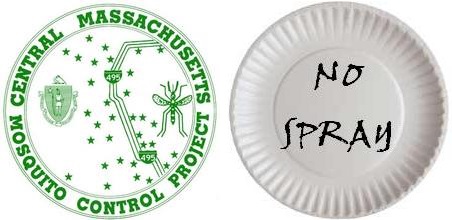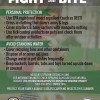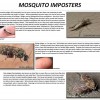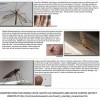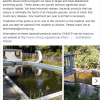Mosquito spraying season is beginning. So, I’ve been asked to again remind people about their rights for opting out. A concerned reader shared:
Tomorrow (Wed) is the first day this season that Southborough appears on the potential mosquito spray schedule. See http://www.cmmcp.org/home/pages/2018-spray-schedules . . .
The CMMCP website has been updated but the process remains the same- they have put an Exclusion link on their homepage which links you to the exclusion form on the MassDAR website. The online form takes less than five minutes to fill out and the exclusion is active within two weeks- anyone who fills it out this week should be on the list for most of the summer. Then residents need to put out “No Spray” signs either the whole summer or on dates when their street is scheduled for spraying.
Last spring, I followed up on her concern about making people aware of the spraying and opt out options. I wrote:
For years now, when mosquitos start flying, many residents worry about a lot more than itchy bug bites. News about the West Nile virus and, more recently, the Zika virus is alarming, especially for parents.
The Central Mass Mosquito Control Project is responsible for limiting the spread of mosquito borne-illnesses through keeping the insect population in check. And that’s achieved through sprayings.
Meanwhile, there have been increasing concerns among some community members (like a reader who contacted me) about pesticide use and impacts.
Some are concerned with organic gardening or keeping chemicals off of their kids. Others are worried about hurting pollinators like butterflies and bees.
If you want to opt out of having your property sprayed, there is a way . It just may not be ideal.
That posting prompted comments from another reader who worked for CMMP. Tim Deschamps clarified:
Spraying is but one service available to area residents by CMMCP as part of an Integrated Pest Management (IPM) plan http://www.cmmcp.org/services.htm. There are several other options used all year long at CMMCP in member communities as a proactive program to reduce or eliminate the need for spraying. Spraying is only done in areas that we receive a request or identify mosquito-borne virus, and certain criteria must be met such as wind speed, temperatures, time of day, etc. . .
CMMCP takes great care in protecting pollinators and other beneficial insects through a policies set in place by MDAR and CMMCP since 2007 (http://www.mass.gov/eea/docs/agr/mosquitos/docs/policy-bee-precautions-and-adulticide-labeling.pdf). All work is done under the mosquito control Generic Environmental Report filed with MEPA in 1998, updated in 2008. http://www.mass.gov/eea/agencies/agr/pesticides/mosquito/generic-environmental-impact-report-geir.html and http://www.mass.gov/eea/agencies/agr/pesticides/mosquito/mosquito-control-updates.html.
Significant research has been done on the pesticides used by mosquito control districts; pesticides we use are consumer-based products and are not restricted use. Many times the formulations we use are in lower concentrations that products consumers purchase at local retail outlets. http://www.cmmcp.org/research_papers.htm
In addition to checking the CMMCP site, you may be interested in some of the Q&A in last year’s comments – here.
As long as I’m posting, I’ll share some other info from CMMCP. Recent Facebook posts shared helpful tips on personal protection from mosquitos and limiting reproduction on your property. They also shared information on other biting and non-biting “mosquito imposters”. Click thumbnails below to enlarge:
(logo and plate images from CMMCP website)

